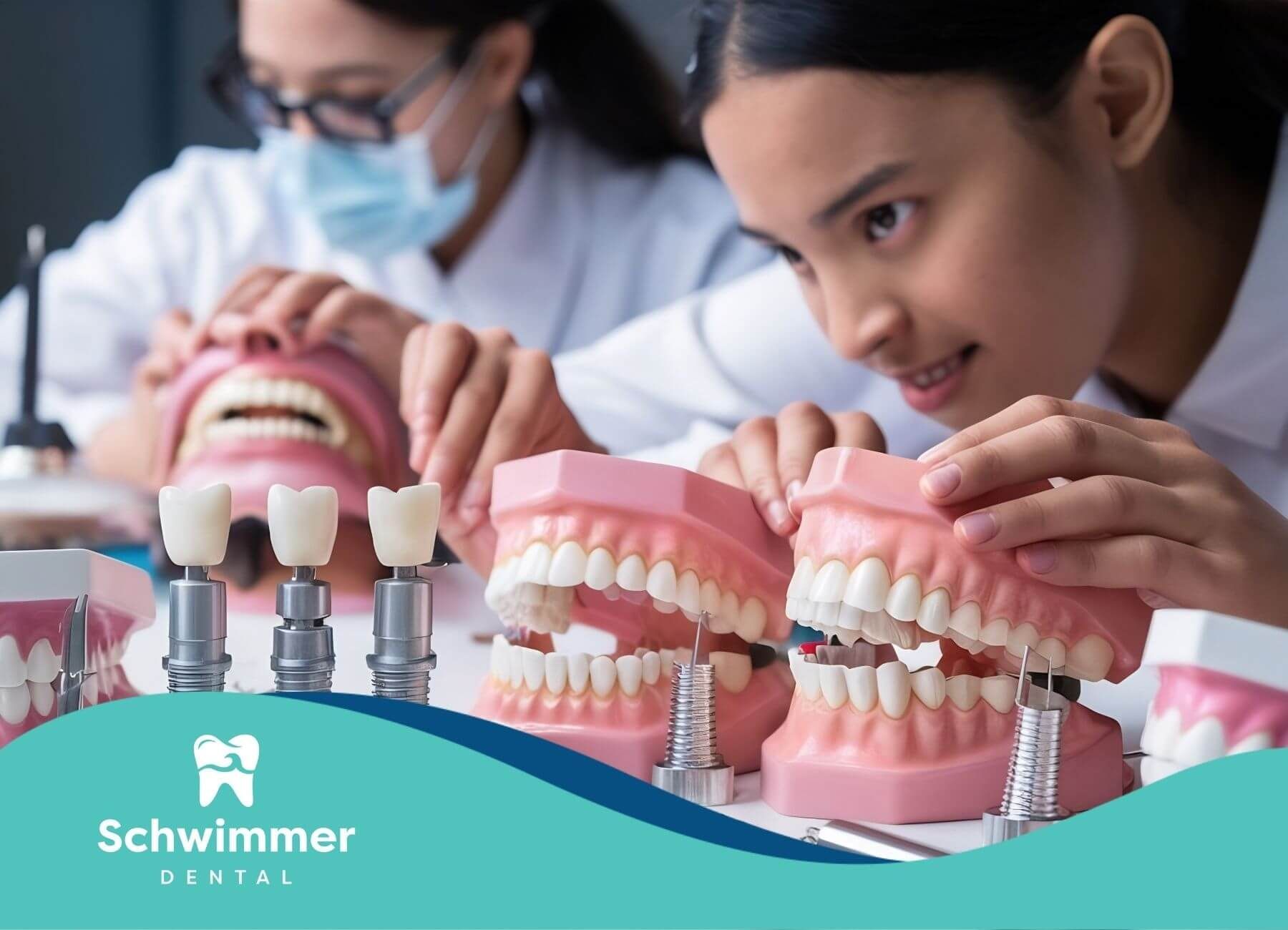The Surprising Impact of Stress on Your Oral Health
Stress can leave its mark not only on the mind and body but on the mouth as well. Longterm stress can damage oral tissues, teeth, and gums in both the short and long term. A Toronto study found that individuals reporting higher perceived stress also experienced progressively poorer oral health and greater oral pain compared to those with lower stress level. This article examines the pathways linking stress and oral health, highlights vulnerable groups, and outlines practical strategies to protect the smile.
Stress and Oral Health
How Stress Affects the Mouth
Chronic stress triggers hormonal shifts and behavior changes that undermine oral defenses. Elevated cortisol levels promote inflammation in gum tissues, increasing the risk of gingivitis and periodontal disease. At the same time, stressed individuals may reach for sugary snacks, tobacco, or alcohol and neglect daily brushing and flossing, all of which contribute to cavities and gum problems.
Hormonal Responses
When stress hormones circulate, saliva flow often decreases. Saliva normally neutralizes acids and washes away bacteria, so reduced flow lets plaque accumulate and enamel weaken.
Behavior and Hygiene
Under prolonged stress, oral hygiene routines often fall by the wayside. Skipping twice‐daily brushing or flossing lets harmful bacteria thrive, boosting the risk of bad breath, tooth decay, and gum inflammation.
Clinical Symptoms
Stress often manifests as distinct oral symptoms. Early recognition can prevent long-term damage.
Bruxism and Joint Pain
Teeth grinding, or bruxism, frequently intensifies during stressful periods. Chronic grinding erodes enamel, chips teeth, and strains the temporomandibular joint (TMJ), causing jaw pain and headaches. Custom night guards can shield enamel and ease joint stress.
Canker Sores and Ulcers
Stress weakens immune defenses, making mouth tissues more prone to canker sores (aphthous ulcers). These painful lesions typically heal within two weeks but often recur if stress persists.
Dry Mouth and Decay
Elevated stress levels can reduce saliva production, leading to dry mouth or xerostomia. Without adequate saliva, bacteria flourish, raising the risk of tooth decay and gum disease. Drinking water regularly and using a non-alcoholic mouthwash can help maintain moisture.
Risk Factors and Populations
Insurance Status Influence
The relationship between stress and oral pain is stronger among uninsured individuals. A Toronto study found that perceived current stress led to higher oral pain scores for those without dental insurance compared to insured participants.
Socioeconomic Position
Lower socioeconomic position intensifies stress’s effect on general oral health. Individuals with limited resources face barriers to preventive care, resulting in increased rates of cavities and gum disease.
Age and Vulnerability
Seniors and young children can be particularly susceptible to stress-related oral issues. Medication side effects, dry mouth, and weakened immune responses put older adults at risk, while stressed caregivers may struggle to maintain young children’s hygiene routines.
Oral Health Risk Factors and Impacts
Uninsured individuals report greater oral pain
Higher self-reported poor oral health outcomes
Reducing Stress for Oral Health
Mindfulness Practices
Techniques such as deep breathing, guided meditation, and body scans can lower cortisol levels and support gum health. Regular mindfulness practice helps reduce the habits that lead to enamel erosion and gum inflammation.
Regular Physical Activity
Exercise triggers endorphin release, which boosts mood and relaxes jaw muscles often tense from stress. Improved sleep quality from consistent workouts also supports oral tissue repair and immune function.
Enjoyable Activities
Hobbies, creative pursuits, and social time provide healthy distractions from stress. Whether painting, walking outdoors, or reading, engaging activities can lower overall tension and encourage better self-care habits.
Maintaining Oral Care
Consistent Hygiene Routines
Even under stress, maintaining a thorough oral hygiene routine is essential. Individuals should:
- Brush twice daily with fluoride toothpaste for at least two minutes, focusing on gum lines.
- Floss once daily to remove plaque between teeth.
- Rinse with a non-alcoholic mouthwash to reduce bacterial buildup.
- Stay hydrated to support saliva production.
Protective Devices
Custom-fitted mouthguards and bite splints protect against bruxism and TMJ strain. Wearing a night guard reduces enamel wear and eases morning jaw discomfort. Over-the-counter appliances can offer temporary relief, but a professional fitting ensures the best protection.
Professional Dental Visits
Regular dental checkups allow professionals to catch early signs of stress-related damage, such as enamel erosion or gum inflammation. Dentists can recommend personalized care plans, including cleanings and appliance fittings for bruxism.
Professional Support Options
Mental Health Resources
Counseling, cognitive-behavioral therapy, and stress management workshops equip individuals with tools to address root causes of stress. Mental health professionals tailor strategies such as goal setting and relaxation training, supporting both emotional well-being and oral health.
Dental Appliance Solutions
For persistent bruxism or TMJ issues, dental appliances like occlusal splints or repositioning devices can redistribute bite forces and protect teeth. Dentists and dental assistants in Point Pleasant Beach can design custom solutions that meet individual needs and comfort levels.
Conclusion
Stress influences oral health through multiple pathways, including hormonal changes, immune modulation, and behavioral shifts. Uninsured individuals, those with lower socioeconomic resources, seniors, and children often face higher risks of stress-related oral problems. Adopting mindfulness techniques, regular exercise, and enjoyable activities can reduce stress levels and support healthier mouths.
Maintaining consistent hygiene routines, using protective devices, and attending regular dental visits are key to preventing and addressing stress-linked damage. Collaboration between dental and mental health professionals ensures a comprehensive approach. By recognizing the surprising impact of stress on oral health and taking proactive steps, individuals can safeguard their smiles and overall well-being.
Stress impacts oral health more than many realize, but with the right strategies, it’s possible to protect your smile while managing everyday challenges. At Schwimmer Dental, we help families, seniors, and individuals of all ages maintain healthy teeth and gums, even in the face of stress. By combining good oral hygiene, mindful practices, and regular dental visits to dentists in Point Pleasant Beach, NJ, you can prevent stress-related damage and improve your overall well-being.
Ready to protect your smile from stress-related damage? Schedule a consultation with us today, and let our team help you maintain a healthy mouth, no matter what life throws your way.
Frequently Asked Questions
How does stress affect my teeth and gums?
Stress can lead to teeth grinding (bruxism), gum inflammation, and a weakened immune system, all of which contribute to oral health issues like cavities and gum disease.
Can stress lead to tooth loss?
Yes, chronic stress can cause gum recession and inflammation, increasing the risk of tooth loss. Proper stress management and regular dental checkups are key to prevention.
What are some ways to manage stress for better oral health?
Mindfulness techniques, exercise, relaxation practices, and good sleep hygiene can help lower stress levels. It’s also crucial to maintain a consistent oral hygiene routine and visit your dentist regularly.
SOURCES:
https://headstart.gov/oral-health/brush-oral-health/discovering-impact-stress-oral-health
https://pmc.ncbi.nlm.nih.gov/articles/PMC5010733/
https://utknoxvilledentists.com/5-ways-stress-can-affect-your-teeth/
https://jamdsr.com/uploadfiles/29STRESSDENTALHEALTHpp118-122.20190511055928.pdf
https://www.colgate.com/en-us/oral-health/kids-oral-care/stress-in-children-and-the-oral-health-affects
https://www.cigna.com/knowledge-center/stress-oral-health



